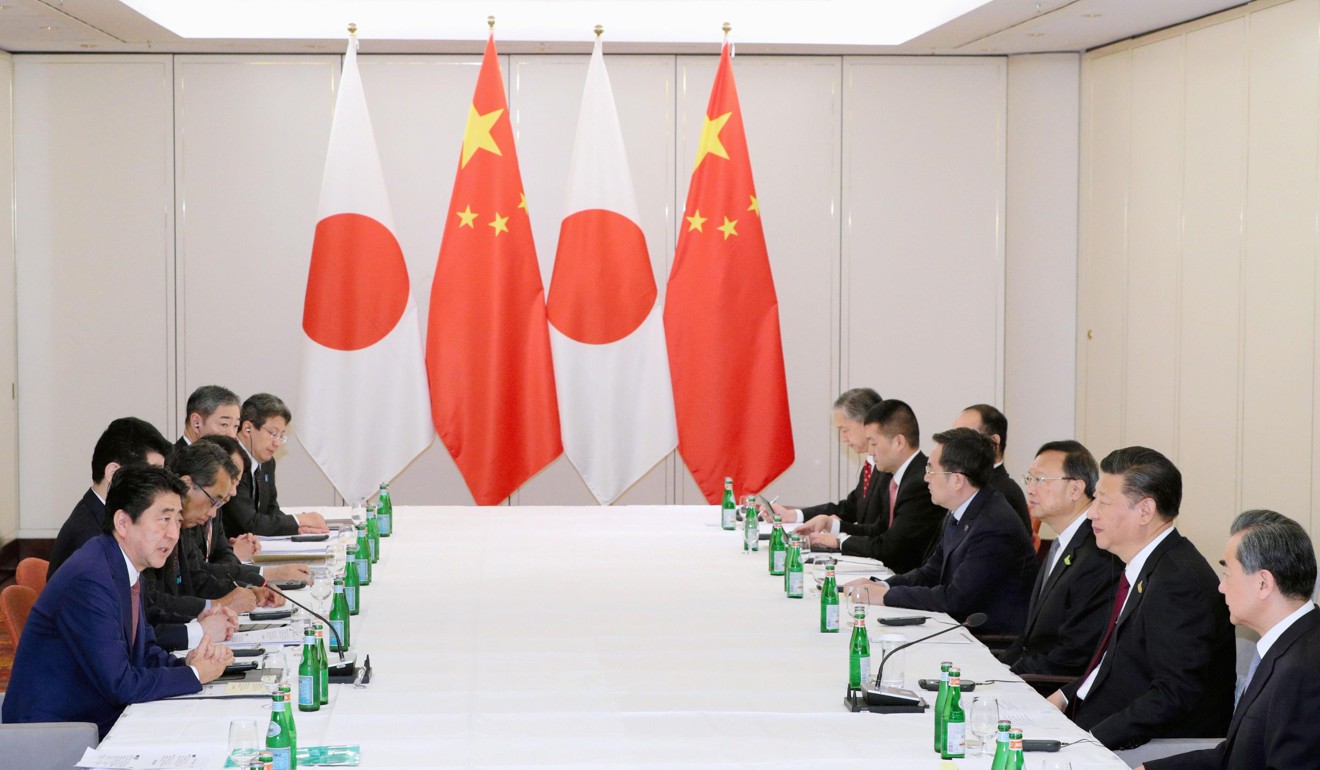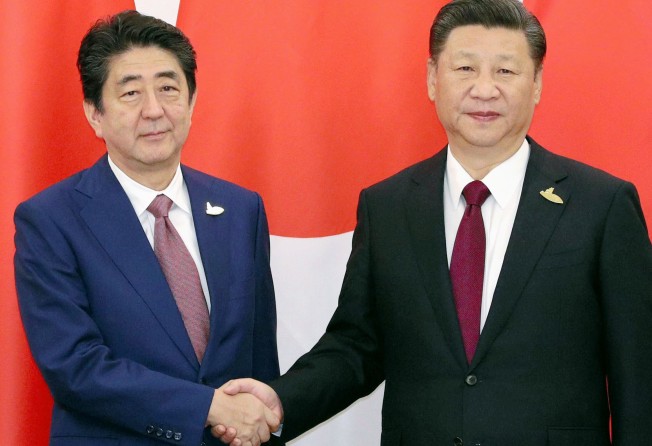
China’s Xi and Japan’s Abe vow to get ties on a healthy track
Two leaders call for action to tackle tensions over historical issues and territorial disputes in the East China Sea during their meeting in Hamburg

The leaders of China and Japan vowed to boost talks and exchanges to get bilateral ties on a healthy track when they met on the sidelines of the G20 summit in Hamburg on Saturday, despite the long-term disputes overshadowing relations.
Chinese President Xi Jinping and Japanese Prime Minister Shinzo Abe affirmed the importance of building “stable” relations. But in remarks that reflected deep-rooted tensions, Abe called on Beijing to do more to ease the situation in the East China Sea, while Xi said Japan should “clear away distractions” affecting Sino-Japanese ties. The half-hour meeting between the two leaders came at a time of improving relations, although the two nations remain divided over historical issues and territorial disputes in the East China Sea.
Two US B-1B bombers trained with Japanese fighters over the East China Sea on Friday, where China and Japan have contesting claims. Beijing has also expressed dismay at Japan forging closer ties with Southeast Asian nations involved in its disputes over the South China Sea.
In Hamburg on Saturday, Xi told Abe that Japan should be cautious in its handling of their disputes and issues to do with Taiwan, which Beijing considers a breakaway province. “On important issues relating to the political foundation of China and Japan, China will not make any concession nor take any step back,” Xi was quoted by Xinhua as saying. “Only that the Sino-Japanese relations will not deviate from a normal track.”

But a diplomatic source said the two sides failed to reach agreement over an air and maritime communications mechanism, which was on Japan’s agenda for the meeting.
Abe also said Beijing’s belt and road trade plan had “potential” to contribute positively to the region and the world, but the two sides did not discuss Japan joining the China-led Asian Infrastructure Investment Bank, the source said.
Japanese foreign ministry spokesman Norio Maruyama said the meeting showed that relations between the two countries had improved, and that China had shown “goodwill from the top level” towards Japan.
Chinese Foreign Minister Wang Yi said after the meeting that Beijing hoped Tokyo would act in a way that matched its words on improving ties.
A Japanese government official meanwhile said the two leaders had pressed North Korea to give up its nuclear ambitions, affirming that Tokyo and Beijing shared a common goal of achieving denuclearisation of the Korean peninsula. Abe urged Xi to play a “more constructive role” in reining in Pyongyang, the official was quoted by Kyodo News as saying.
He also urged Xi to “improve the situation in the East China Sea”, the official said, an apparent reference to Beijing’s claims over the Diaoyu Islands, which are known as the Senkakus in Japan.
But the two leaders indicated they would build on momentum from the 45th anniversary of the normalisation of diplomatic ties this year and the 40th anniversary of the resumption of diplomatic ties next year.
Abe also signalled Japan’s intention to work with China on its ambitious belt and road initiative to boost trade and infrastructure links with nations from Asia to Africa, Xinhua reported.
The two sides have made efforts to improve ties recently, with Chinese State Councillor Yang Jiechi visiting Japan last month, paving the way for more high-level dialogue.
Sun Cheng, a professor at China University of Political Science and Law, said Tokyo had adjusted its stance on Beijing as US foreign policies were uncertain under President Donald Trump. “I think we’ve seen some improvement in bilateral relations but it’s too early to say if any fundamental changes are happening,” he said. “The Diaoyu territorial disputes are still unresolved.”
Additional reporting by Laura Zhou